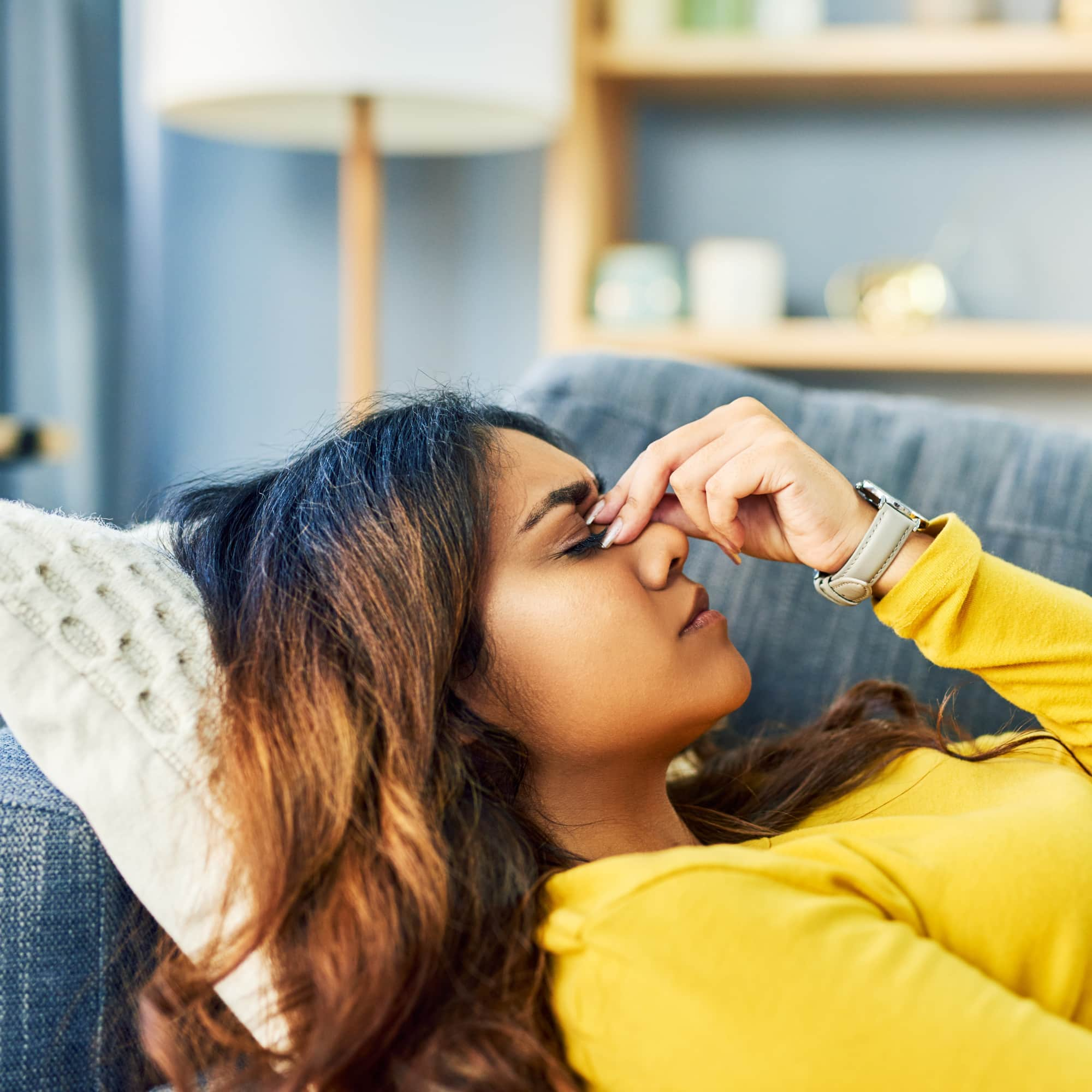
- POPSUGAR Australia
- Fitness
- Doctors Explain Why You’re More Likely to Get Headaches When You’re Sleep Deprived
Doctors Explain Why You’re More Likely to Get Headaches When You’re Sleep Deprived

Whether you always struggle to sleep or you’re just going through a particularly rough patch, missing out on those precious hours of shut-eye can drain you mentally and physically. If feeling fatigued and irritable weren’t enough, you may also notice that you get headaches more frequently when you don’t get enough sleep. Neurologists say there’s a clear link between the two, so you officially have another reason to prioritize getting those seven to nine hours each night.
“Lack of sleep from any cause – including insomnia, obstructive sleep apnea, periodic limb movements, and circadian rhythm disorders – can trigger headaches,” Gretchen Tietjen, MD, a board-certified neurologist and professor of neurology at the University of Toledo College of Medicine and Life Sciences, told POPSUGAR. She also noted that sleep disorders are common among people who have existing headache disorders such as migraines, tension-type headache, and cluster headache.
There’s science to explain the connection. “Sleep promotes proper functioning of the glymphatic system, which clears waste products from the brain,” Dr. Tietjen said. “This is protective against headaches.” According to Robert Dias, MD, a board-certified neurologist and sleep medicine expert at Dignity Health Mercy Medical Group, sleep deprivation can also cause headaches “by various mechanisms involving chemical and physiological processes in the brain, which include alterations in metabolic, endocrine, and hormonal factors.”
Both doctors also emphasized that sleep apnea is a common cause of headaches. This is because individuals with sleep apnea often have poor sleep quality despite getting the recommended seven to nine hours of shut-eye. “In obstructive sleep apnea, there’s disordered breathing, [which causes] periods of low oxygenation,” Dr. Tietjen explained, adding that this lack of oxygen has been associated with early-morning headaches. “Headaches upon awakening can be associated with changes in cerebral blood flow, low oxygen, and elevated carbon dioxide levels,” Dr. Dias said.
What’s more, the connection between sleep and headaches runs so deep that it’s not just lack of sleep that causes them – Dr. Dias told POPSUGAR that sleeping too much, or having irregular sleep patterns, can also trigger headaches. He explained that for patients who suffer from migraines or experience frequent headaches, establishing a healthy, consistent sleep pattern is the most effective prevention strategy. If you adjust your nighttime routine and you still experience frequent headaches and migraines, it may be a sign of an underlying medical condition. If this occurs, it’s time to schedule an appointment with your doctor.

